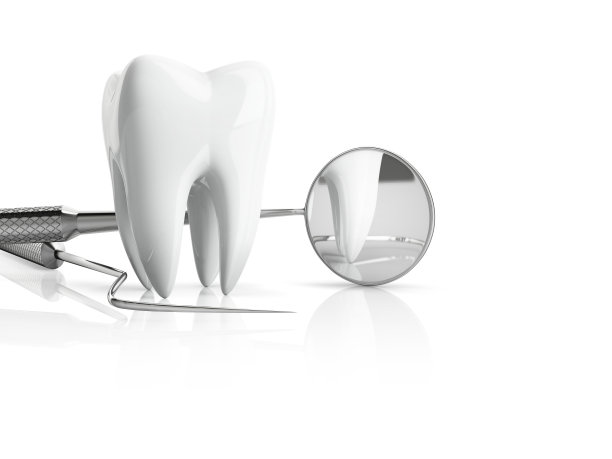Summary: Dental fillings are essential for restoring the integrity of damaged teeth while improving overall oral health. However, it is crucial to follow certain precautions before and after the procedure to ensure optimal results. This article outlines essential precautions categorized into four key aspects: understanding the procedure, maintaining oral hygiene, dietary considerations, and follow-up care. Each section elaborates on the necessary steps and recommendations to help patients recover effectively and protect their dental work. By adhering to these guidelines, individuals can enhance their oral care routine and minimize complications, ultimately achieving lasting benefits from their dental fillings.
1. Understanding the Dental Filling Procedure

Before undergoing a dental filling procedure, its vital for patients to fully understand what to expect. Knowledge about the procedure will not only alleviate anxiety but also enable patients to prepare adequately. The dentist will typically explain various aspects, including the materials used for fillings, the pain management options available, and the estimated time required for the procedure.
Patients should also ask questions regarding the type of filling material that would best suit their needs, as choices may include composite resins, amalgams, or ceramics. Each material has unique properties, durability, and aesthetic qualities that may influence the decision.
Moreover, understanding the potential side effects and complications is crucial. This knowledge empowers patients to recognize symptoms that may arise post-procedure and to seek medical attention when necessary.
2. Maintaining Proper Oral Hygiene
Oral hygiene plays a significant role in the success of dental fillings. Before the procedure, its essential to maintain a thorough oral hygiene routine, which includes regular brushing and flossing. This minimizes bacterial buildup, which can lead to further decay around a filling.
After receiving a filling, patients must continue to prioritize their oral health. It’s recommended to avoid hard or sticky foods that could disrupt or dislodge the filling. Soft foods will allow for a smoother recovery period as the mouth adjusts to the new filling.
Following the procedure, it is also important to establish a routine that includes rinsing with an antibacterial mouthwash. This step can reduce the risk of infections and promote faster healing of the surrounding gums.
3. Dietary Considerations Following the Procedure
The diet one follows post-filling can significantly affect recovery. Immediately after the procedure, it is advisable to avoid consuming hot or cold foods and beverages until the numbness from anesthesia wears off. This helps prevent accidental biting of the cheek or tongue.
Once numbness subsides, patients should avoid particularly crunchy or hard foods for at least 24 hours. Foods like nuts and hard candies can put undue stress on the newly placed filling, which could lead to damage or discomfort.
Furthermore, patients should be cautious with sugary foods and beverages that can accelerate tooth decay. Maintaining a balanced diet filled with vitamins and minerals can aid in recovery and contribute to better overall oral health.
4. Importance of Follow-Up Care
Follow-up appointments are integral to monitoring the condition of dental fillings and overall oral health. Patients should adhere to scheduled appointments with their dentist to ensure that the fillings are functioning properly and to identify any potential issues early on.
During these visits, the dentist may conduct inspections to check for wear and tear or signs of decay surrounding the filling. Regular check-ups are a proactive way to maintain the integrity of the dental work and to address any concerns promptly.
In the event of experiencing prolonged sensitivity or discomfort following the procedure, patients should not hesitate to reach out to their dentist. Timely feedback can help identify complications, ensuring that any issues are addressed before they develop into more severe problems.
Summary:
Adopting essential precautions before and after receiving a dental filling procedure is crucial for optimal oral health. Understanding the procedure, maintaining oral hygiene, being mindful of dietary choices, and prioritizing follow-up care can significantly enhance recovery and the longevity of dental work. By following these guidelines, patients can ensure their dental commitments yield positive, lasting results.
This article is compiled by Vickong Dental and the content is for reference only.
Vickong Dental
Vickong Dental is a large medical group established in Hong Kong in 2008 by professors from well-known medical universities in Guangdong and Hong Kong, as well as medical doctors from key national '985' universities (including Master's supervisors and senior professors). The chain of branches brings together expert dentists with PhDs and Master's degrees from Hong Kong and Mainland China, committed to providing high-quality dental treatment.
"Vickong Dental Practices the University Motto of 'Healing and Serving Society,' with a Stable Operation for Sixteen Years. It Has Been honored with Hong Kong Enterprise Leaders's Choice,' and is a Global Trusted Implant Center for the Nobel Implant System. Recommended by Hong Kong Metro Broadcast and Guangdong Television, it Serves Customers from Over Thirty Countries and Regions, Gaining the Trust and Favor of Citizens from the Guangdong-Hong Kong-Macau Greater Bay Area and Surrounding Cities.

Thousands of customers' unanimous praise
The most recognized and highly recommended dental service by customers in the Guangdong-Hong Kong-Macau Greater Bay Area
We Ensure You Receive Detailed Care and Attention Here
Hong Kong standards, Shenzhen prices, Your Trusted English-speaking dentists

Vickong Dental Medical-Grade Instrument Disinfection Process
Vickong Dental Medical-Grade Instrument Disinfection Process

Vickong Dental Chain: A Warm and Comfortable Environment for Treatment






Appointment Hours

Q&A
Why choose Vickong Dental?
Vickong Dental practices the university motto 「Medicine to Benefit Society」, with each branch bringing together highly qualified dentists with doctoral and master’s degrees from Hong Kong and the Mainland, and has maintained seventeen years of steady operation。Recipient of 「2024 Hong Kong Enterprise Leaders Brand」, 「2025 Hong Kong Enterprise Leaders Brand」, a Nobel Biocare Global Trusted Implant Center, and a brand recommended by Metro Radio Hong Kong and Guangdong TV。
To date, we have served customers from more than thirty countries and regions,earning exceptionally high word-of-mouth recognition and trusted recommendations from residents across the Guangdong-Hong Kong-Macao Greater Bay Area and surrounding cities
We have eight major branches in Zhuhai、Shenzhen,and a consultation and service assurance center in Hong Kong,so you can book a free consultation at any time for any questions,which is very reassuring.
If I do not accept the quotation after the CT scan, will I be charged??
No! As long as the actual treatment has not started, you will not be charged any fees.
Will there be any additional charges during the treatment process?
No, there won’t be any additional charges. Before treatment begins, we will clearly explain the treatment plan and its corresponding fees. Only after the patient agrees and signs the consent form will we proceed with the dental service.
Can I pay in Hong Kong dollars?
Yes. Vickong Dental accepts payment in Hong Kong dollars. The amount will be converted based on the exchange rate of the day, and the applicable rate will be clearly communicated to you in advance.
Can I reschedule my appointment at any time?
Yes. Please contact us via **WeChat** or **WhatsApp** as early as possible, providing your original appointment time and details, along with your preferred new date and time slot for rescheduling.













